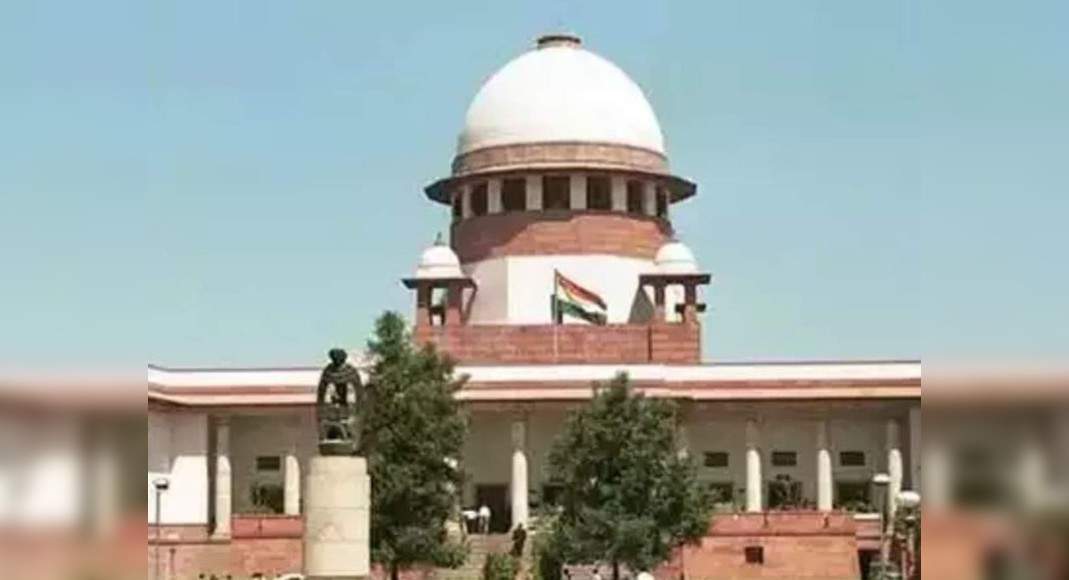NEW DELHI: In a test case to hold unruly legislators accountable, the Supreme Court on Monday agreed to examine the liability of people’s representatives under the Prevention of Destruction of Public Properties Act while detesting rising incidents of indiscipline by protesting MLAs and MPs who break mikes and furnitures on the floor of the House.
The secretary of Kerala assembly had sent a complaint to police after Vaikom CPI MLA K Ajith threw a mike and broke furniture in the House on March 13, 2015, to protest presentation of budget by the then finance minister of the Oommen Chandy government.
The secretary quantified the cost of the damage at Rs 2.20 lakh.
The police lodged an FIR under the Prevention of Destruction of Public Property Act.
In 2018, the trial court rejected the Pinarayi Vijayan government’s plea to withdraw the case.
On appeal, the Kerala HC upheld the trial court’s decision.
When the Kerala government’s appeal arguing that “no case is made out against Ajith” was taken up by the SC, a bench of Justices D Y Chandrachud and M R Shah said, “If the MLAs throw mike and destroy public property, let them face trial under the law.
What message are you sending to the public whom you represent? If they are not held accountable for their unruly and violent acts, there will be no deterrence to this kind of behaviour.” Senior advocate Ranjit Kumar said it was a matter for the House to decide and that the courts are barred from interfering in the matter, which could be dealt by the Speaker, who he said had not sanctioned lodging of the FIR against Ajith.
He said withdrawal of prosecution against the MLA was in public interest, which is a legally available ground to the public prosecutor for withdrawal of a case, after he independently applied his mind to it.
Kumar said it was a political protest as the MLA had a right to protest inside the House without being subjected to persecution being protected under Article 194(2) of the Constitution.
He said the MLAs were protesting against the presentation of the budget by a “corrupt” finance minister.
“The domain of the legislature must be protected,” he said.
But, Justices Chandrchud and Shah, while adjourning the hearing of the case to July 15, said, “What is the larger public interest the public prosecutor felt when the case related to obstruction of presentation of the finance bill, which is of utmost importance.
Some modicum of decorum must be maintained in the temple of democracy.
Such incidents are on the rise in the Assemblies and even witnessed inside Parliament.” The Kerala government’s appeal stated that on March 13, 2015, “at about 8.55 am, while the finance minister of the state was presenting the budget for the financial year 2015-2016 in the Kerala legislative assembly hall, the accused, who, at that time were opposition MLAs, disrupted the budget presentation, climbed over to the Speaker’s dais, damaged articles like the Speaker’s chair, computer, mike, emergency lamp etc.
and thereby caused a loss of Rs.2,20,093 to the government.” The assistant public prosecutor, Ernakulam, filed an application under section 321 of the criminal procedure code on July 21, 2018 seeking to withdraw the case against all accused persons and told the trial court that it was a bonafide request in the interest of justice.
The Thiruvananthapuram chief judicial magistrate rejected the application on September 22, 2019 and said the application was filed “without good faith and on external influence”.
The Kerala government’s appeal was dismissed by the HC on March 12 this year.
The HC had said, “Interestingly, Clause 44 in the ‘Code of Conduct for the Members of the Kerala Legislative Assembly’ exhorts the members to keep the fundamental duties listed in Part IV-A of the Constitution uppermost in their minds.
One among the fundamental duties, as postulated by Article 51A (I), is to safeguard public property and to abjure violence.” In its appeal against the HC decision in the SC, the Pinarayi Vijayan government asked, “When the alleged offences under Section 447 and 427 of IPC and Section 3(1) of the Prevention of Damage to Public Property Act happened in connection with an incident on the floor of the Legislative Assembly during the budget session of the legislature while making a protest by opposition MLA against the budget presentation by the then finance minister due to the then prevailing political reason, is it proper to dismiss an application filed by the prosecutor under Section 321 by the Court on the ground that the application submitted by the public prosecutor was not in good faith and not supported by any cogent reason?” “When the alleged incident had occurred while the assembly was in session and no crime could have been registered without previous sanction of the Speaker, the FIR registered by the Secretary of the Legislative Assembly without the consent of the Speaker is wrong and therefore the application filed under Section 321 is liable to be allowed,” it pleaded.







